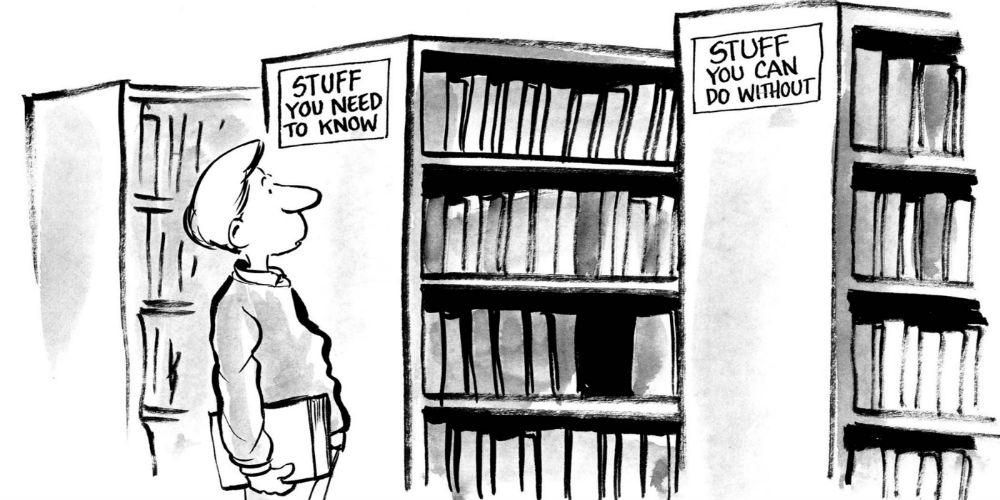When you know better, you do better

In a recent statewide consumer survey conducted by Georgia Credit Union Affiliates, 66 percent of respondents said they learned about finances from life experience.
To me, when I see “learned from life experience” that means, “learned the hard way.” The bounced-a-bunch-of-checks-and-got-my-account-closed way. The made-a-late-payment-hit-with-fees-and-jacked-up-interest-rates way. The didn’t-pay-the-bill-and-the-water-got-cut-off way. All lessons, by the way, that “life experience” taught me at one time or another.
With two out of three people learning their money lessons like this, I am not alone. And the tuition on this kind of schooling is steep! Late fees, accruing penalties, higher deposits required on utilities, lower credit scores, higher interest rates on loans, fewer options when it comes time to make a purchasing decision, and the stress that can seep into other areas like work and relationships…the cost is high for that kind of life experience.
So why don’t more people talk to the kids in their lives about money?
I see four major reasons:
You think it’s over their heads. You still need to do everything for them, from wiping their noses to making sure they wear a coat outside in winter. But kids as young as 5 love playing “store” and pretending to deal with money. At this point, they probably still like doing things with you! Take them out and about with you so they can see you go through the business of banking, paying bills, making buying decisions. They emulate you and want to be like you. It’s easier if you start early, so make it fun and make them aware of the role money plays in daily life.
If you’ve made some financial decisions in your life that you’re not exactly proud of, it might be difficult to admit that to your child. You want to be a good role model. You want to be the person they can look up to. You worry what they will think of you if they find out you’ve made mistakes. Maybe really big mistakes.
Well, if you can’t be a good example, maybe you can be a horrible warning. Although that quote is funny, there is some credence to it. Say when you were younger you got a credit card and rang up the balance so high you couldn’t pay it off, then damaged your credit and had to get a car at a buy here/pay here lot and paid double the price of the car in interest. Or fill in the blank with whatever painful financial situation you found yourself in that you now chalk up to “life experience.”
If you share your story, and the negative impact of some decisions that meant others were automatically made for you, it might keep your kids from making similar mistakes. And save them a lot of time and effort to get things back on track. If they keep in mind the consequences of your actions, you’d be giving them the gift of more knowledge – and hopefully better decisions – than you possessed way back when you had your first real job, an unblemished credit card and a $1000 limit on your shiny new credit card.
When you were growing up, money wasn’t discussed. If you never had anyone talk with you about finances when you were a child, it’s hard to know what to say to your own kids. But just because you don’t talk about it – or talk about it honestly – doesn’t mean your kids don’t know anything about what’s going on. If you don’t make sure they have good, useful information they might not correctly interpret what they see. They might think you sticking to a tight budget means money is too tight for them to feel secure, when in reality, you are just committed to adding to the substantial cushion you’ve saved. Like so many “big” topics, talking about it with your kids isn’t necessarily easy, but it’s necessary.
You don’t think you know enough to properly educate them. That could very well be true. But the remedy to that is not to leave them to their own devices. Get yourself educated first. It will be beneficial for them to grow up in a home that is on solid financial ground and show them a good example by arming yourself with all the knowledge you need to create a successful life.
Your kids are going to have information flung at them from every angle. Most of us regularly receive credit card offers, bills, direct mail and email promoting something that separates consumers from their money. Young people need to be equipped with the knowledge that will allow them to confidently make informed decisions about their finances and their futures.
Don’t leave them to learn these lessons from “life experience.” Be a gentler teacher than bill collectors will ever be. We all want our kids to find success. To do better than we did.
When kids know better, they will do better.
April is Financial Literacy Month and Credit Union National Youth Month. For more information on personal financial literacy for you and your children, visit www.asmarterchoice.org and http://www.georgiaconsortium.org.





